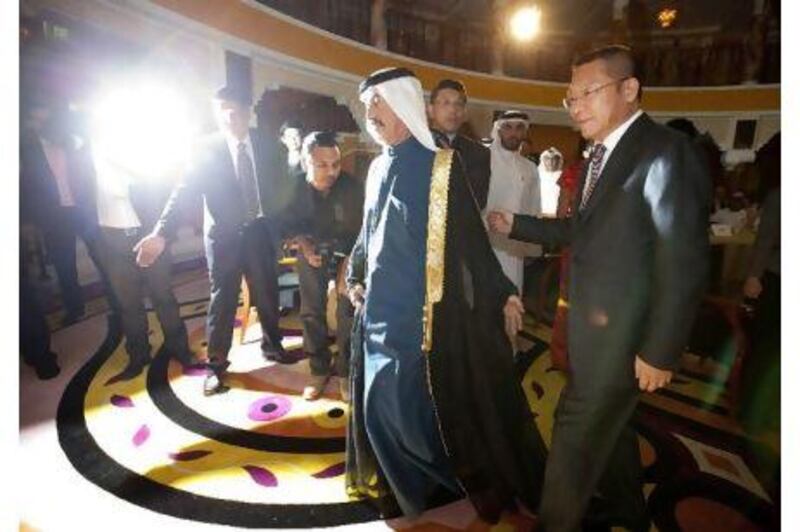China Central Television (CCTV) has opened a Middle East bureau in Dubai and says it is weighing the launch of a dedicated channel for the region.
The state-owned company's new facility at Dubai Media City will have 14 staff and a studio capable of transmitting live broadcasts.
CCTV's Middle East centre will oversee correspondents stationed in Iran, Iraq, Syria and Lebanon, serving as a news-gathering centre for the region. The bureau will broadcast in several languages; the network has channels in Chinese, English, French, Spanish, Russian and Arabic.
Dubai Media City is operated by TECOM Investments. Mohammad Abdullah, the managing director of the media cluster at TECOM Investments, said the bureau would supply CCTV's channels with news about the region.
"At a later stage, they are planning maybe to have some kind of live broadcasting from their office here, because it is equipped to be broadcasting live from their studio," Mr Abdullah said.
Negotiations between TECOM and CCTV started six months ago, and the Chinese broadcaster chose the Business Central Towers in Dubai Media City because "they were looking specifically for the view … of the city", Mr Abdullah said.
The launch of the Dubai bureau brings the total number of CCTV's overseas operations to 50, and the broadcaster says it will add 16 next year.
CCTV is available in 140 countries and is accessible by more than 1 billion viewers, 200 million of which it says are outside China. The network, which was formed in 1958, is made up of 19 channels.
In July last year, CCTV launched an Arabic-language international channel, saying at the time that it aimed to maintain stronger links with Arab nations. The channel is broadcast free-to-air via satellite across the Middle East.
Wang Tiegang, the bureau chief at CCTV Middle East, said the company was also considering launching a dedicated Middle East channel.
"We have a studio here, so maybe, in the near future, we will establish a channel here … in Arabic, English and Chinese," Mr Tiegang said.
Abdullatif al Mulla, the group chief executiveof TECOM Investments, said the new channel could help foster business ties between the two nations.
"We welcome CCTV and foresee it playing a vital role in creating better awareness of our offerings to the Chinese companies that are keen to explore the Middle East market," he said.
"We consider this synergy will also serve to nurture the existing partnership between the UAE and China."
The UAE has recently seen an increase in the number of tourists from China, after the Chinese government relaxed travel laws for its citizens, with tours to the UAE permitted for the first time from September last year.
The move is expected to result in a 50 per cent to 100 per cent increase in the number of Chinese visitors to the UAE this year.
As more Chinese have started to visit the UAE, the number of local media companies looking to cater to the Chinese market has also grown. Three Chinese magazines have launched in the UAE to target this market.





